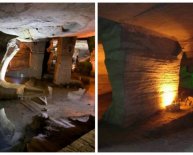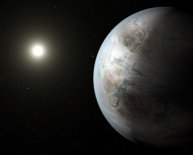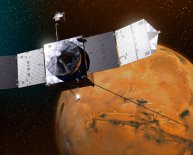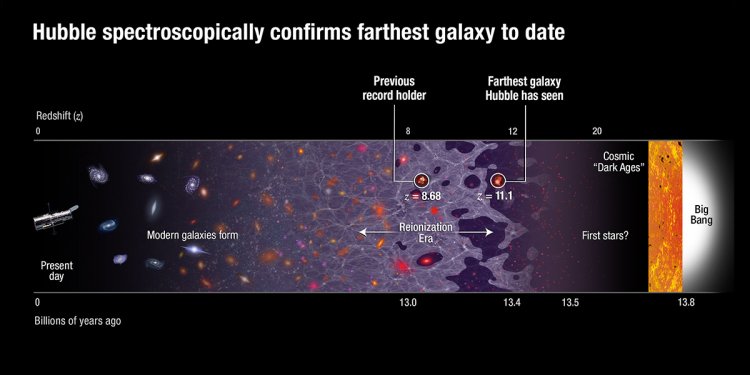
Earth on galaxy
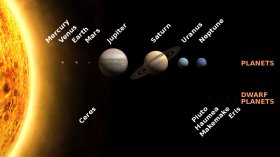 The Solar System. Credit: NASA
The Solar System. Credit: NASA
You've probably heard the saying "everything's relative". When you consider our place in the Universe, everything really is relative. I'm recording this halfway up Vancouver Island, in the Pacific Ocean, off the West Coast of Canada. And where I'm standing is about 6, 370 kilometers away from the center of the Earth, that way.
From my perspective, the Sun is over there. It's as large as a dime held at arm's length. For me it's really, really far away. In fact, at this exact time it's further away than any object I you can see with the naked eye.I'm about 150 million kilometers away from the Sun, and so are you.
We're carving out an elliptical orbit which takes one full year to complete one whole trip around. You, me and the Earth are all located inside our Solar System. Which contains the Sun, 8 planets and a vast collection of ice, rocks and dust. We're embedded deep within our galaxy, the Milky Way. It's a big flat disk of stars measuring up to 120, 000 light years across.
Our Solar System is located in the middle of this galactic disk. And by the middle, I mean the center of the galaxy is about 27, 000 light years that way, and the edge of the galaxy is about the same distance that way.
Our Milky Way is but one galaxy in a larger collection of galaxies known as the Local Group. There are 36 known objects in the local group. Which are mostly dwarf galaxies. However, there's also the Triangulum Galaxy, the Milky Way, and the Andromeda galaxy… which is by far the largest, most massive object in the Local Group, It's twice the size and 4 times the mass of the Milky Way.
The video will load shortly
But where is it?
From me, and you, Andromeda is located just an astronomically distant 2.5 million light years that way. Or would that be just short 2.5 million light-years that away? I'm sure you see where this is going.
The Local Group is embedded within a much larger group known as the Virgo Supercluster, containing at least 100 galaxy groups and clusters. The rough center of the supercluster is in the constellation Virgo. Which as of right now, is that way, about 65 million light years away. Which certainly makes the 2.5 million light years to Andromeda seem like an afternoon jaunt in the family car.
Unsurprisingly, The Virgo Supercluster is a part of a larger structure as well. The Pisces-Cetus Supercluster Complex. This is a vast filament of galactic superclusters measuring about 150 million light years across AND a billion light years long. The middle is just over that way. Right over there.
One billion light years in length? Well that makes Andromeda seem right around the corner. So where are we? Where are you, and I and the Earth located in the entire Universe? The edge of the observable Universe is about 13.8 billion light years that way. But it's also 13.8 billion light years that way. And that way, and that way.
Andromeda Galaxy. Credit: Fabio BortoliAnd cosmologists think that if you travel in any direction long enough, you'll return to your starting point, just like how you can travel in any one direction on the surface of the Earth and return right back at your starting point. In other words, the Earth is located at the very, very center of the Universe. Which sounds truly amazing.
What a strange coincidence for you and I to be located right here. Dead center. Smack dab right in the middle of the Universe. Certainly makes us sound important doesn't it? But considering that every other spot in the Universe is also located at the center of the universe.

